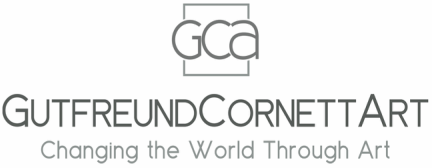The hardest part of assimilating to American culture was finding myself in a world that often wanted to define me as a one-sided story and not a bicultural, bilingual, fluid individual who was able to work and function in two worlds, two languages, and two cultures all at once.
I grew up being stereotyped and held in a place that often made me feel limited and less then what I felt I could be. While growing up undocumented I felt my educational and work opportunities were limited to my status as a citizen in the United States, and therefore it was a reflection of my value as a person and my level of intelligence. While undocumented my father worked his way up in his organization by taking night classes to improve his English and his skills as a mechanic until eventually finding ourselves in a position where we were more financially stable and even able to afford more “luxury items”. We then faced an opposite issue, we were now “not Mexican enough” often labeled as white-washed and fake. It cuts to a deeper issue in both an American and Mexican culture and that is our inability to not only recognize multiple cultures in people but, also not using all the advantages that come with it. Instead, it forces us to limit ourselves, play dumb and fear what is actually one of the most powerful tools any person can hold: the ability to move between borders that have so often separated people. We can be bridges that help to connect people and build greater opportunities. We see the world through different lenses and offer new and innovative perspectives and solutions that at one point could have seemed impossible to solve. I look back at the impacts I have been able to make in my community and can see that it was biculturalism that allowed me to work with and impact the lives of so many people, it was not my vise, my status in this country, but my ability to fearlessly take from both of my cultures and use it as a way to connect and work with others.
The biggest mistake that could possibly be made in this day and age is ignoring what will be a new segment in markets, a cultural revolution that we already see changing music, dance, fashion, and finance. We must begin to use one another as opportunities to connect and focus on our similarities instead of the handful of differences.
I grew up being stereotyped and held in a place that often made me feel limited and less then what I felt I could be. While growing up undocumented I felt my educational and work opportunities were limited to my status as a citizen in the United States, and therefore it was a reflection of my value as a person and my level of intelligence. While undocumented my father worked his way up in his organization by taking night classes to improve his English and his skills as a mechanic until eventually finding ourselves in a position where we were more financially stable and even able to afford more “luxury items”. We then faced an opposite issue, we were now “not Mexican enough” often labeled as white-washed and fake. It cuts to a deeper issue in both an American and Mexican culture and that is our inability to not only recognize multiple cultures in people but, also not using all the advantages that come with it. Instead, it forces us to limit ourselves, play dumb and fear what is actually one of the most powerful tools any person can hold: the ability to move between borders that have so often separated people. We can be bridges that help to connect people and build greater opportunities. We see the world through different lenses and offer new and innovative perspectives and solutions that at one point could have seemed impossible to solve. I look back at the impacts I have been able to make in my community and can see that it was biculturalism that allowed me to work with and impact the lives of so many people, it was not my vise, my status in this country, but my ability to fearlessly take from both of my cultures and use it as a way to connect and work with others.
The biggest mistake that could possibly be made in this day and age is ignoring what will be a new segment in markets, a cultural revolution that we already see changing music, dance, fashion, and finance. We must begin to use one another as opportunities to connect and focus on our similarities instead of the handful of differences.

 RSS Feed
RSS Feed